I wouldn’t be at all surprised if this title turned out to be the simmiest firefighting diversion I play this week. Not only has Bochum-based developer Crenetic faithfully reproduced German firefighting techniques, it has created remarkably detailed facsimiles of the equipment used by German blaze battlers. £20 (until July 10) Emergency Call 112 is almost worth buying just for its fab fire engines.
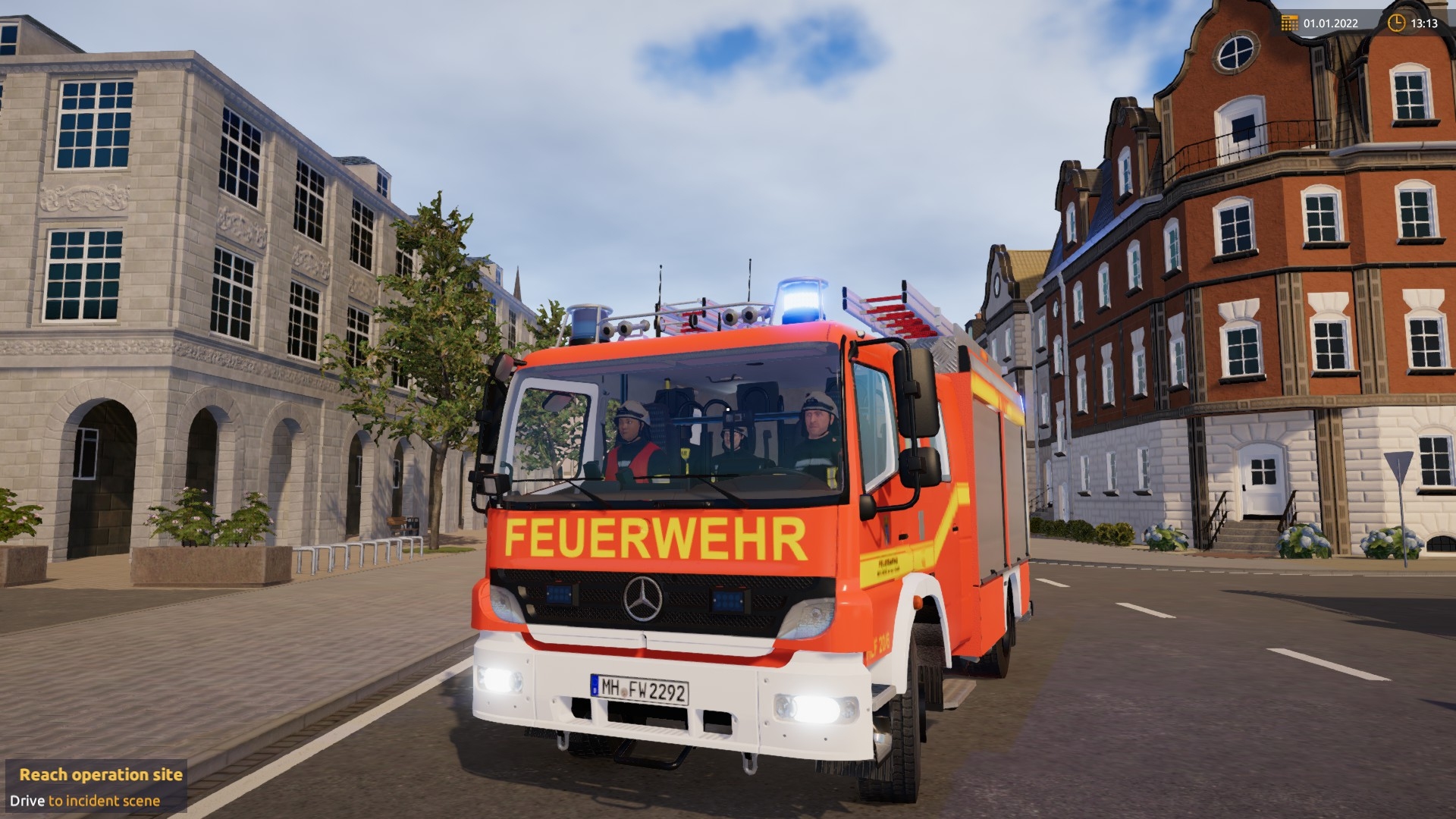
Firetrucks in lesser sims often seem to be treated as wheeled equipment menus. Stand here, press this key, and, hey presto, you’re armed with a hydrant spanner or a disc cutter! In EC112 the realism doesn’t stop at the roller shutters.
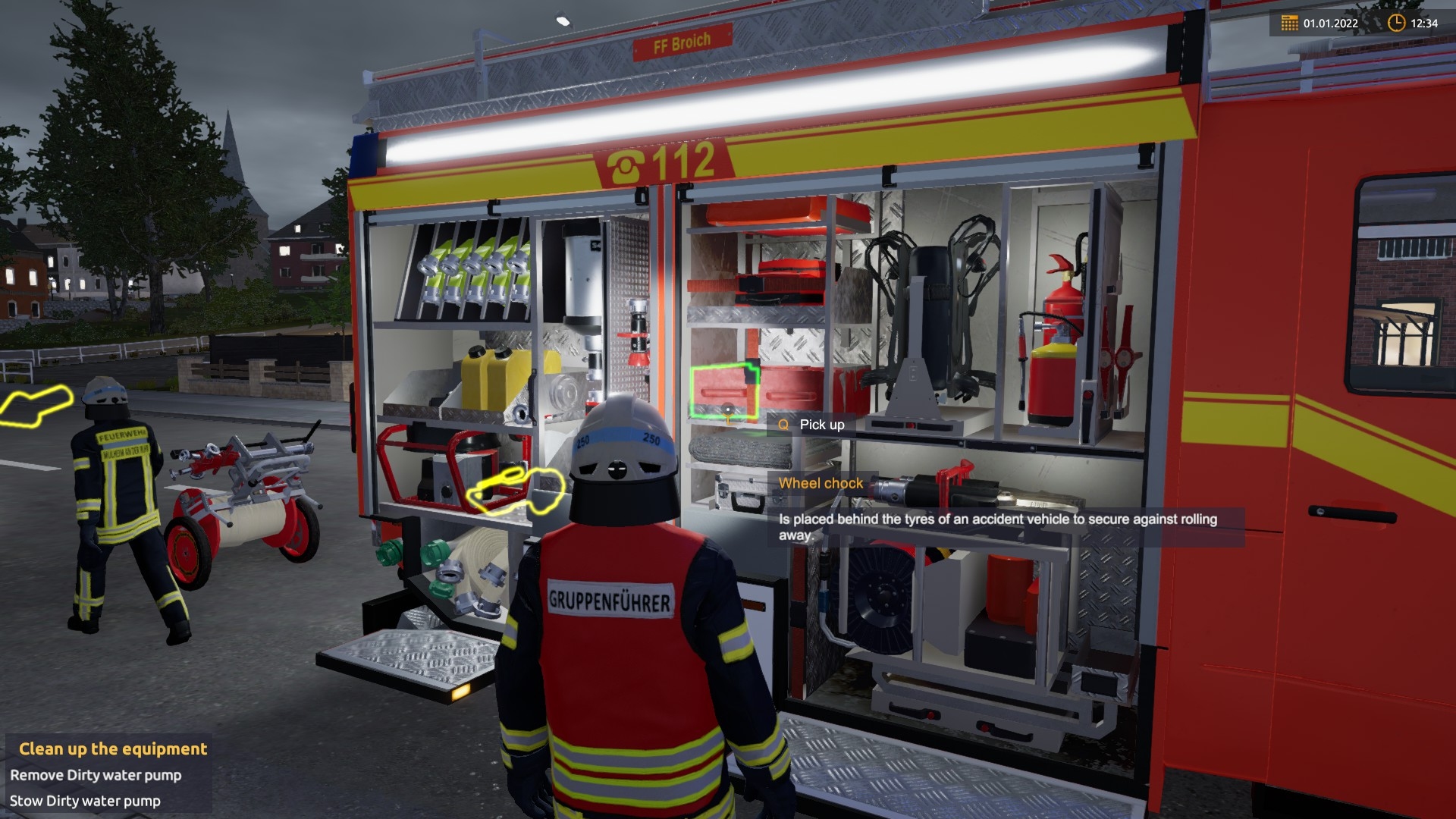
All ten simmed vehicles boast extensively modelled interiors crammed with removable kit stowed exactly where it should be stowed. Want to find the ceiling supports in a LF24? You’ll need to unhitch the hose trolley from the rear of the vehicle, deploy the ladder, clamber onto the roof, and flip open the left-hand storage compartment. On site with a KEF van and need boltcutters? You’ll find that in the back on the right, below the warning triangle shelf.
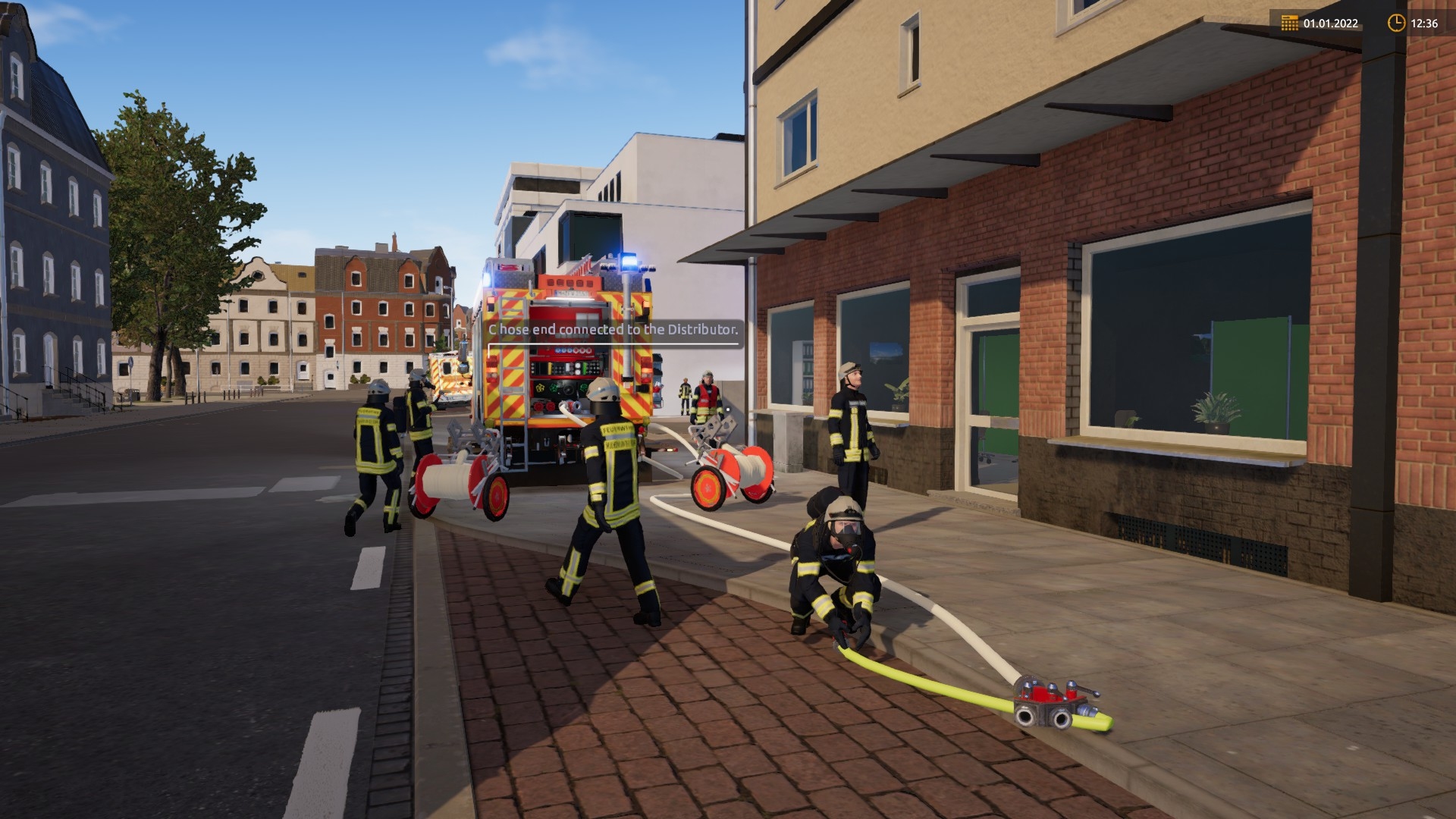
In addition to showing you exactly where to find things in a Teutonic fire appliance, the game is also pretty good at showing you what to do with kit once you’ve retrieved it. By issuing orders via an overhead tactical view, it’s possible to automate many of the sim’s more complicated procedures. A few menu clicks will cause colleagues to disembark and start setting up supply and attack hose spaghetti. A couple more and they will take those attack lines and begin tackling fires, usually very efficiently, without any specific pathfinding instructions from the player.
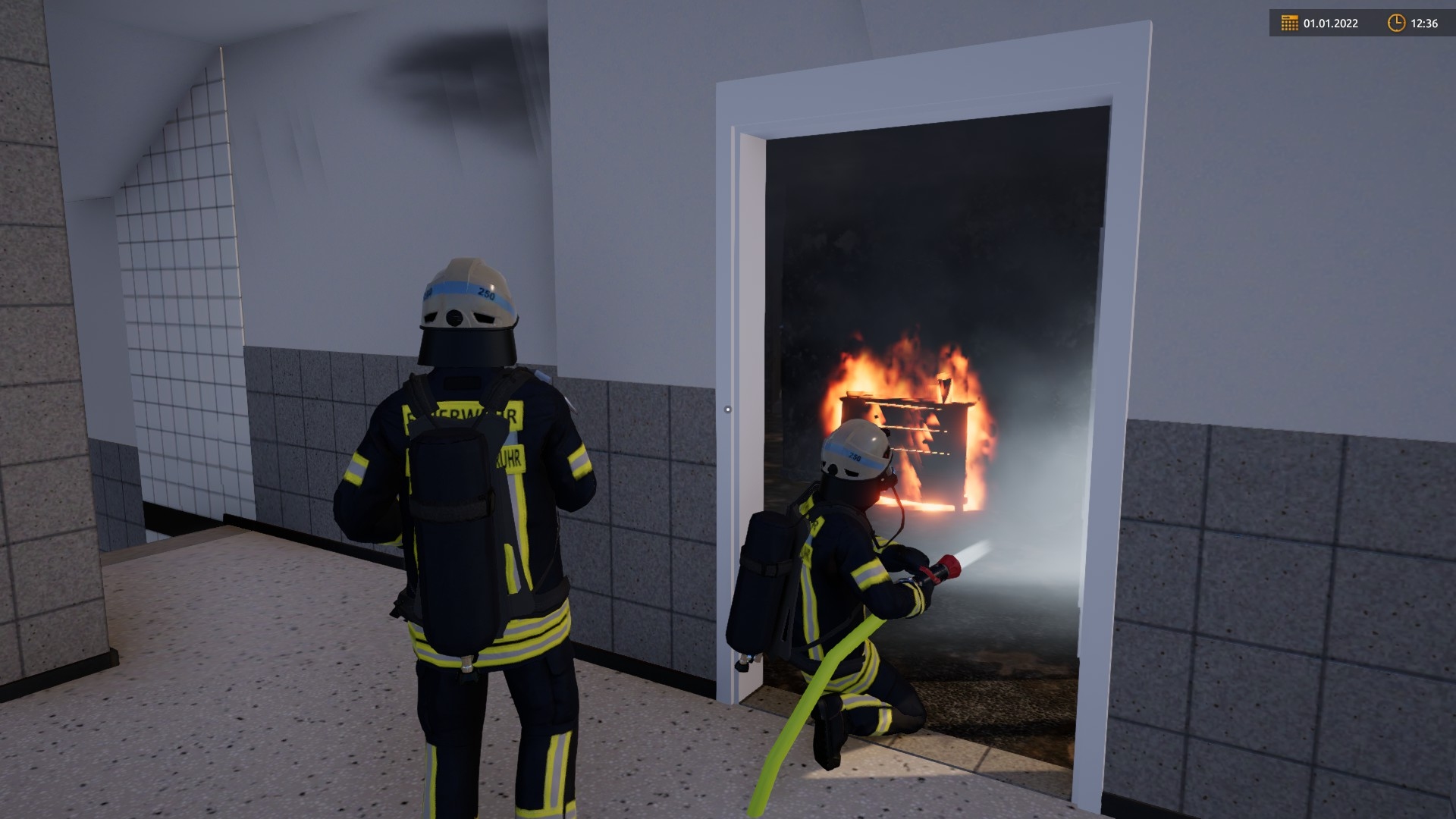
Watching fellow hose jockeys going about their business is a great way to learn the ropes and soak up atmosphere, but can, for obvious reasons, leave you feeling a tad superfluous. If I’ve started as ‘Einheitsführer’, invariably, at some point during a shout I’ll access the teams menu and jump into the boots of someone in a water or attack squad.
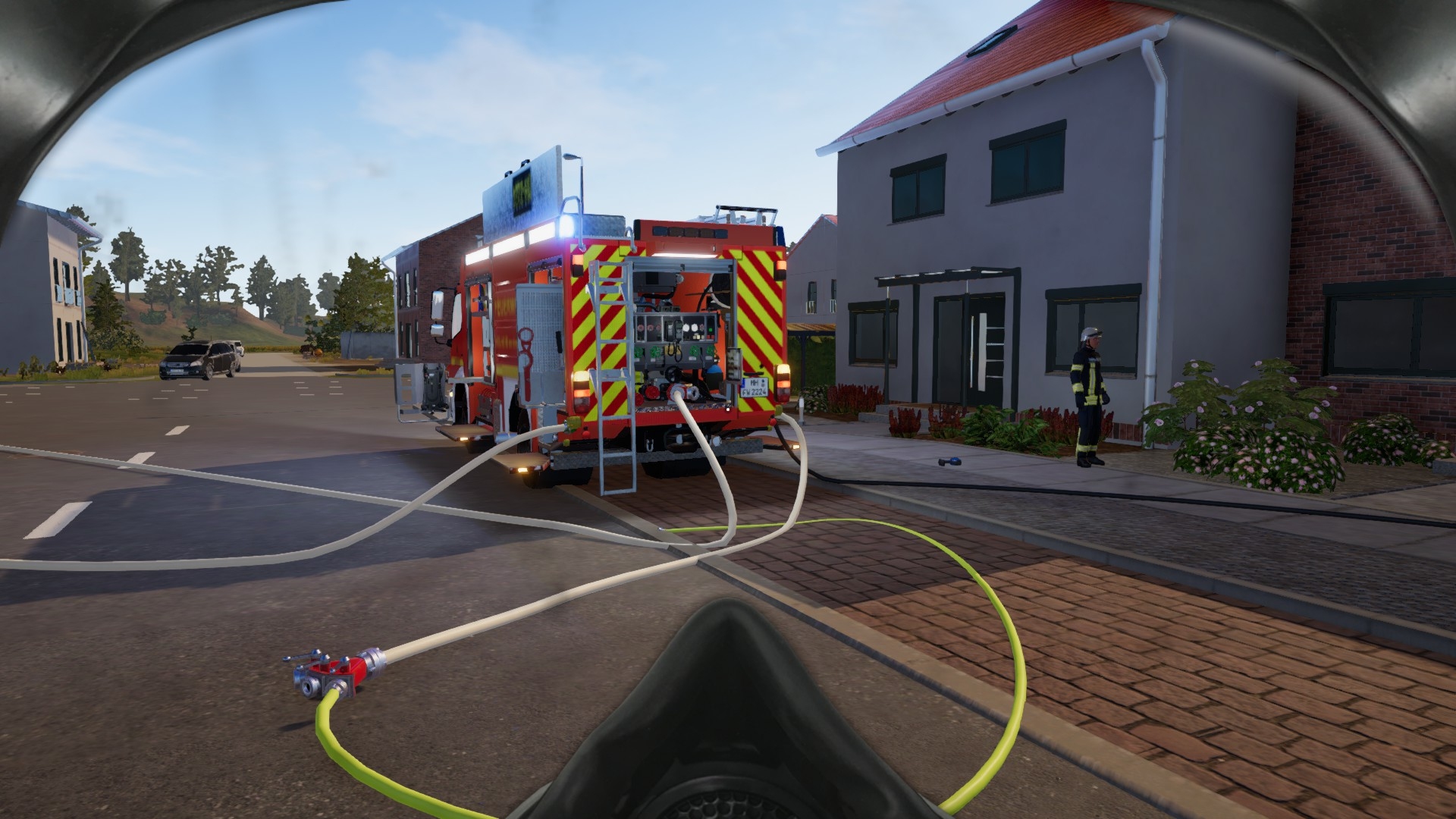
Sometimes, especially during the early phases of a job, my well-meaning but unscientific* assistance seems to confuse my colleagues. How much of this apparent confusion is down to brittle AI, and how much is down to my incompetence, I couldn’t say for sure at present. Whatever the cause, usually after a spot of experimentation or another role change, fires do end-up quenched.
* As the tutorials were a tad slow and desiccated, I opted to skip them and learn ‘on the job’.
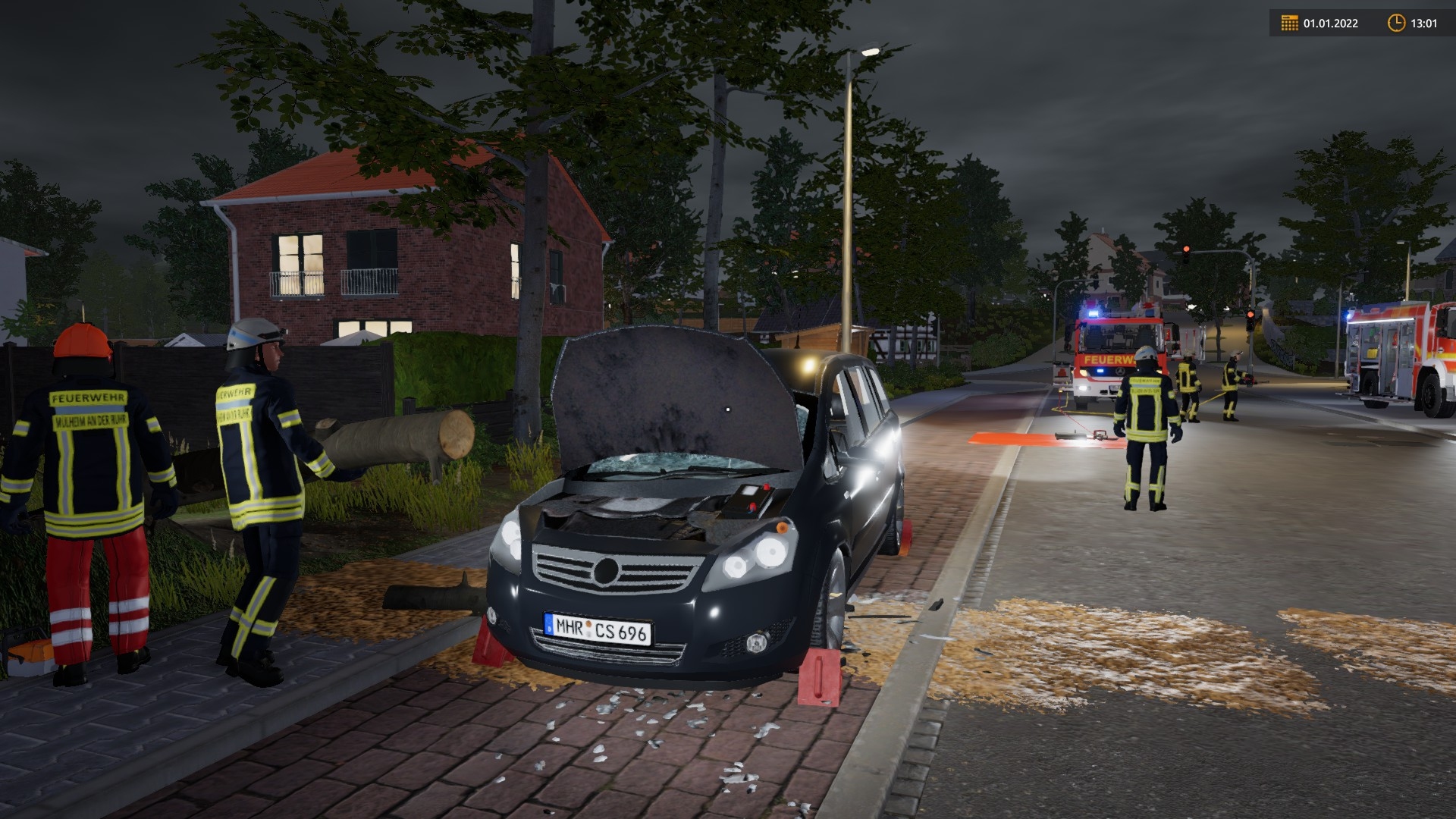
Not that EC112 is all about flame dousing. Play, as I’ve been doing, exclusively in sandbox mode and you’re almost as likely to find yourself attending a randomly generated road accident, flood, or fallen tree calamity as a randomly generated fire. The prosaic nature of many of the shouts, and the fact that you have to navigate a fully-modelled fire station and fictional town in order to reach objectives, reinforces the air of authenticity the game cultivates through its equipment and procedural realism.
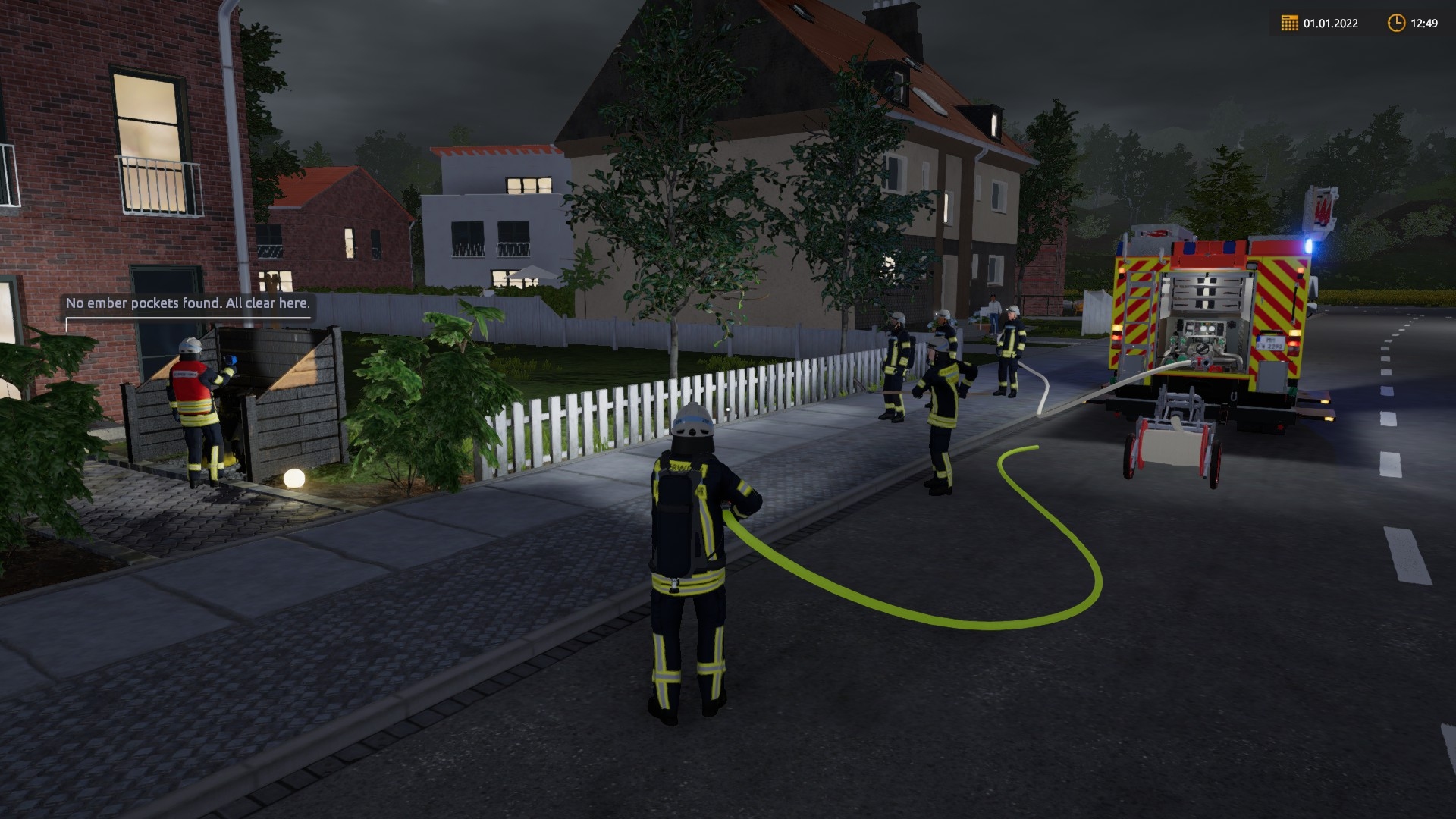
The way the sim insists you do an ember check after every fire is seemingly extinguished is typical of Crenetic’s attention to detail. After you or a colleague inspects ashes for hotspots using a thermal imaging camera, a firefighter then exposes problem areas using a pitchfork so that they can be drenched by a hoseman. I don’t know if EC112 found its way into German fire brigade training centres, but the idea is far from preposterous.
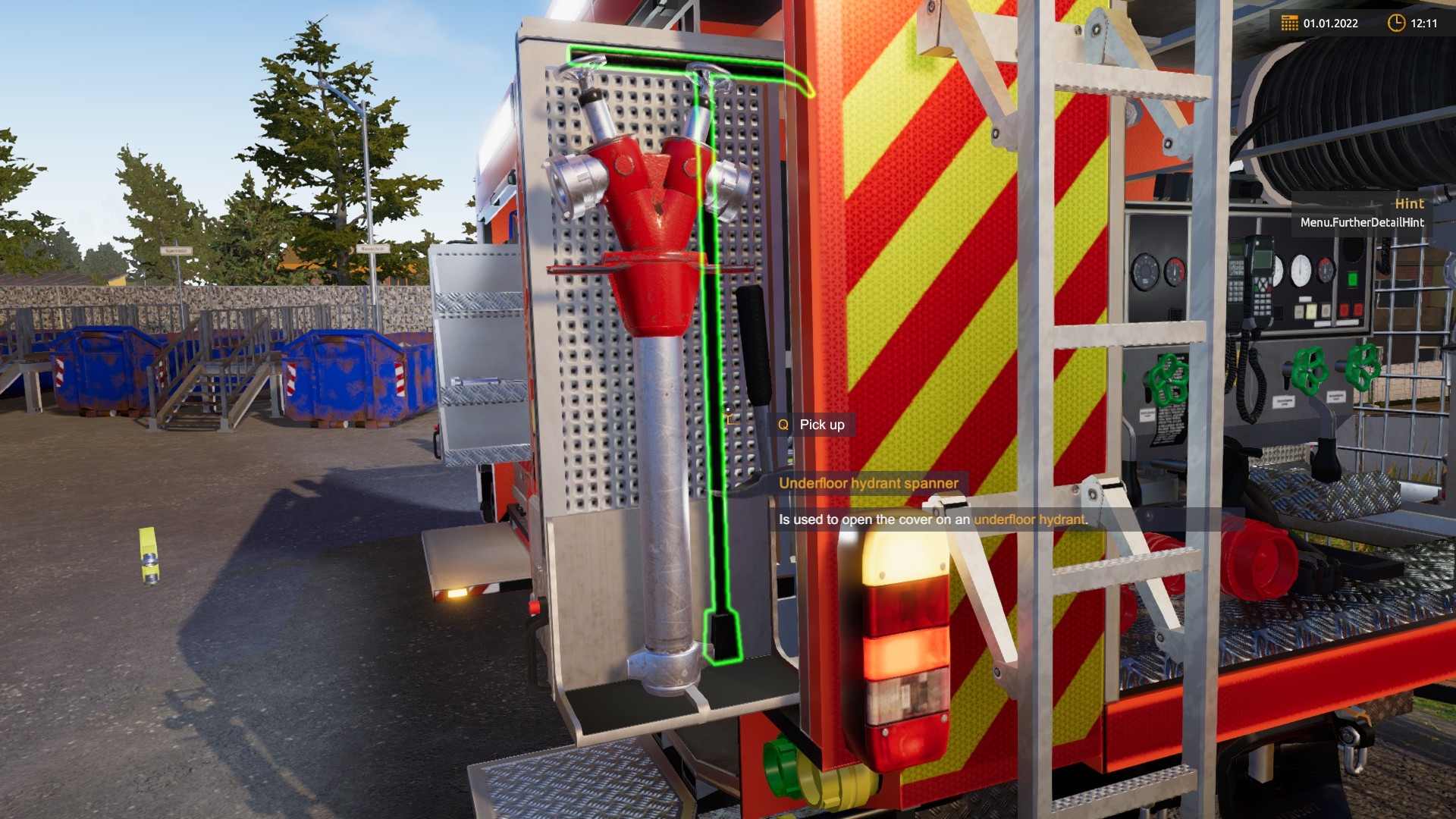
Glitch gripes seem to be behind most of the red thumb Steam reviews. I got stuck in scenery a couple of times during the four hour audition. On both occasions the ability to switch characters and activate tactical orders allowed me to finish the jobs in question.
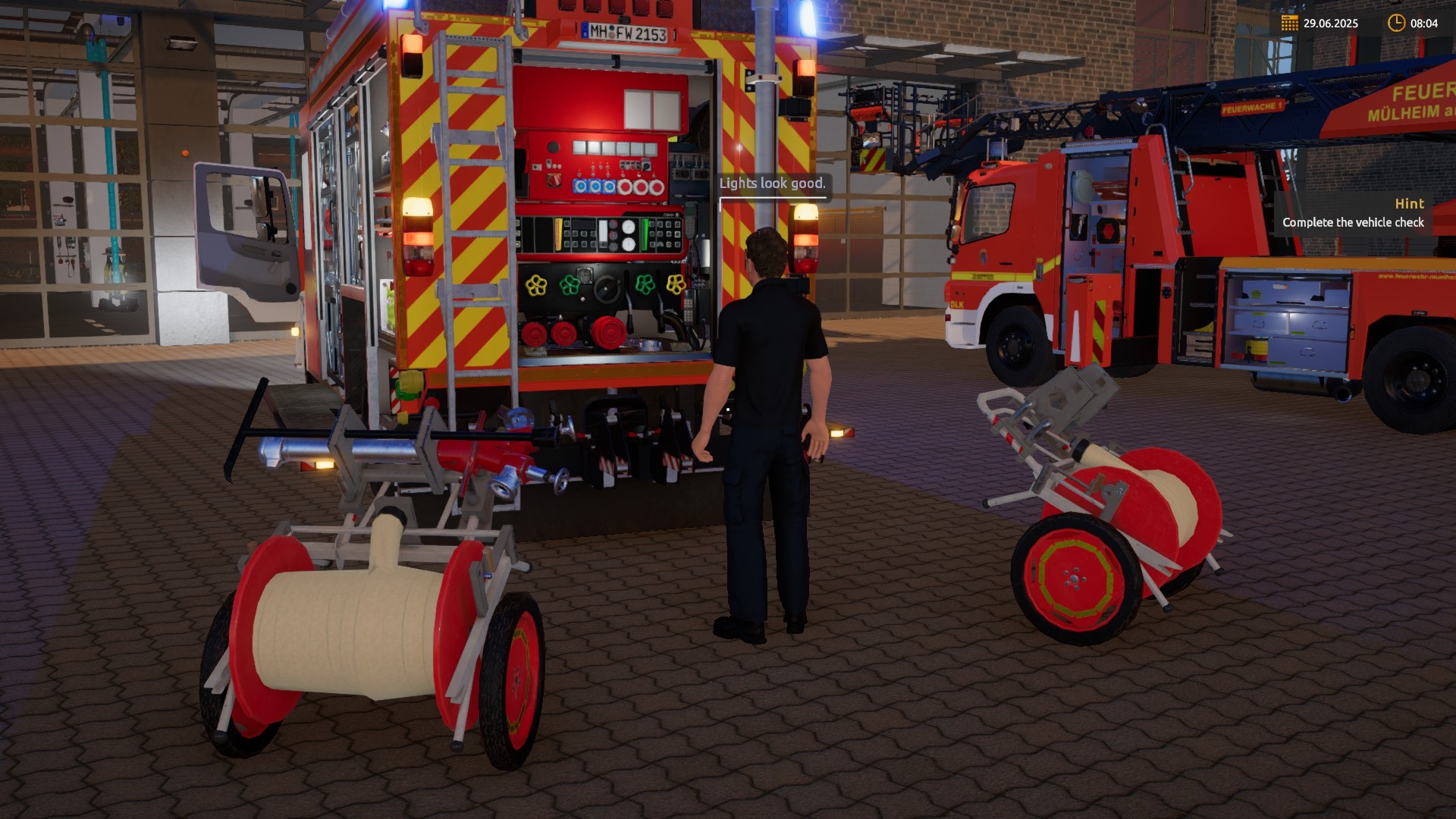
Impressively realistic and agreeably thorough, Emergency Call 112 might be too pedantic and prosaic for some. If you’d rather spend your evenings battling infernos and saving lives than spraying melted wheelie bins and pumping out basements, it’s possible the games I’ll be auditioning tomorrow and Friday may be more up your street.

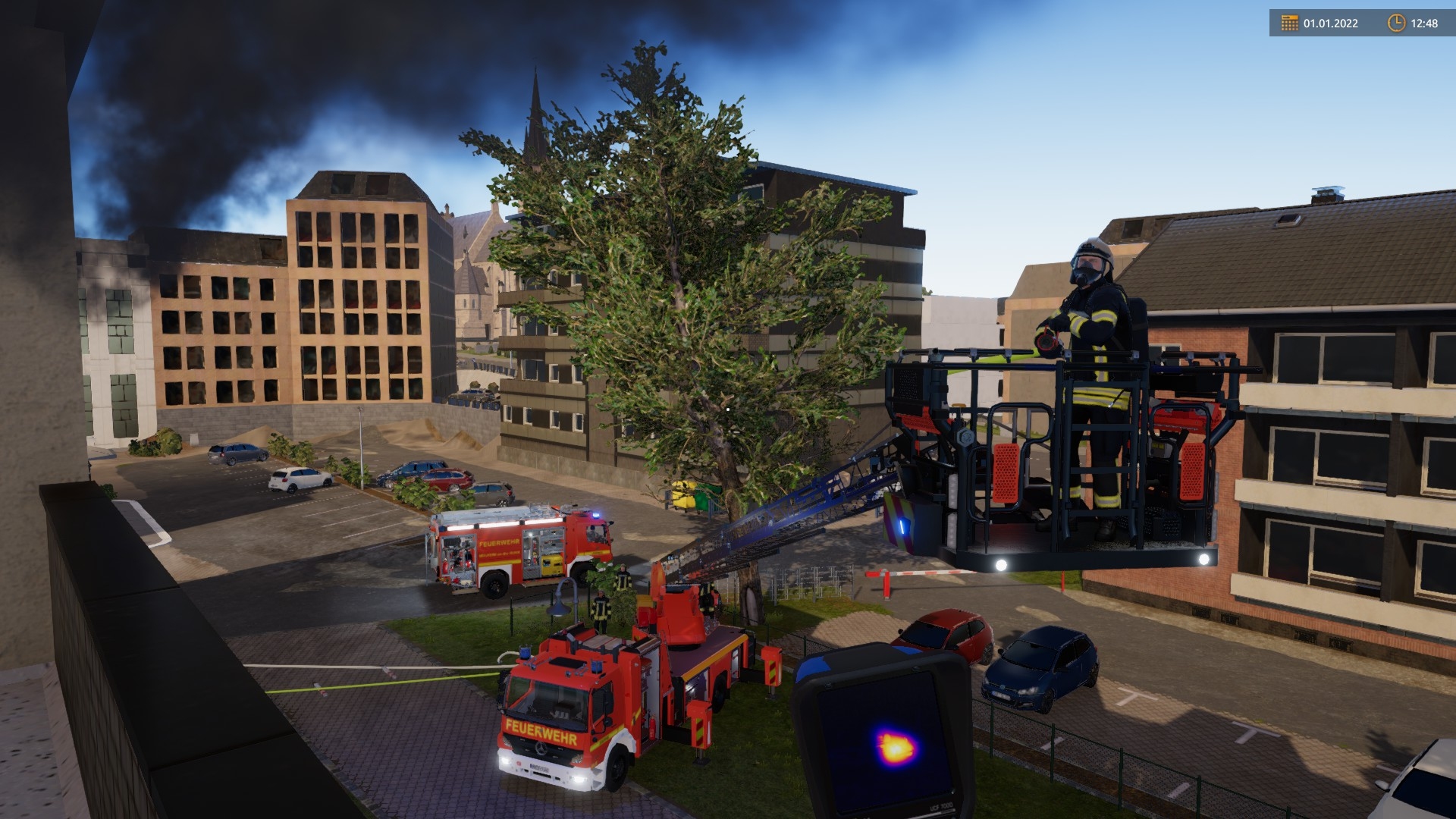
But does it let you spend twice as long cleaning everything once you get back to the hall, or let you be the overtime crew that gets to sit on a hose for your whole shift wetting down the foundation of an un-saved structure? I swear, these games always miss the really fun parts…